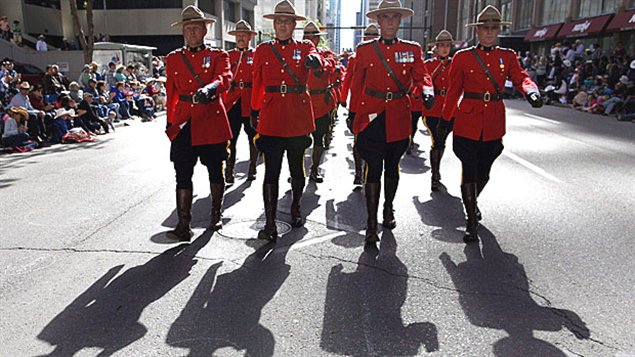Recognized around the world for the bright red serge coats, the Royal Canadian Mounted Police serve a variety of roles in areas across Canada. From traffic patrols in some areas, to investigations of corporate fiscal fraud, and international gang activity and more.
However in recent years, members of the RCMP have been involved in a series of scandals, lawsuits,and accusations of cover-ups of misdeeds.

In response the RCMP has this week circulated a proposed new code of conduct for its members, the first in 25 years.
In connection with several incidents where “mounties” have been accused of using unnecessary force, it also states the members will, “use force that is necessary, proportionate and reasonable in the circumstances.”
The force has also been facing allegations and lawsuits over sexual harassment of female members. Several lawsuits and a class-action have been filed against the force.
The code for the first time contains a section called Respect and Courtesy which reads in part that members are expected to “treat the public and colleagues with respect and courtesy” and to “not engage in acts of discrimination or harassment.”
Former policewoman Janet Merlo,is the lead plaintiff in the proposed class-action lawsuit. She feels the new code gives her some optimism that things are starting to change within the force. She adds however, “it’s not worth the paper it’s on if you don’t enforce (the rules)”.
Another section says Mounties must not “alter, conceal or destroy any property, money and documents coming into their possession;” avoid potential conflicts of interest that could affect their judgment; behave in a manner that doesn’t bring discredit to the force; and provide “complete and accurate” accounts regarding the performance of their duties, investigations or the conduct of other members.
It also says members must avoid making public statements that could have an adverse effect on morale or perception of the force or make statements and speeches that “could reasonably be considered to represent the views of the force” without authorization.
This has been construed by many to be an attempt to “muzzle” members who might have grievances. They say the issue of harassment of female officers might have remained buried under this proposed code, by keeping them from talking to reporters
Darryl Davies, who teaches criminal justice at Carleton University in Ottawa, said in an interview,” “I think senior management would want to put a lid on anything and certainly this commissioner has an approach that indicates ‘nobody talks to the media except me,’ and that works against the interests of policing, that works against the interests of the public,”
Rob Creasser, a retired Mountie and spokesperson for the Mounted Police Professional Association of Canada, a group that advises members who have grievances against the force, thinks the provision against making public statements might violate the Charter right of freedom of speech.
Creasser also thinks RCMP culture itself has to change. “As long as we have the old boys’ or old girls’ club kind of running the show, that isn’t going to happen and this code of conduct does nothing to change that.”
Members of the RCMP have been given until September 30 to give feedback to the draft code.







For reasons beyond our control, and for an undetermined period of time, our comment section is now closed. However, our social networks remain open to your contributions.